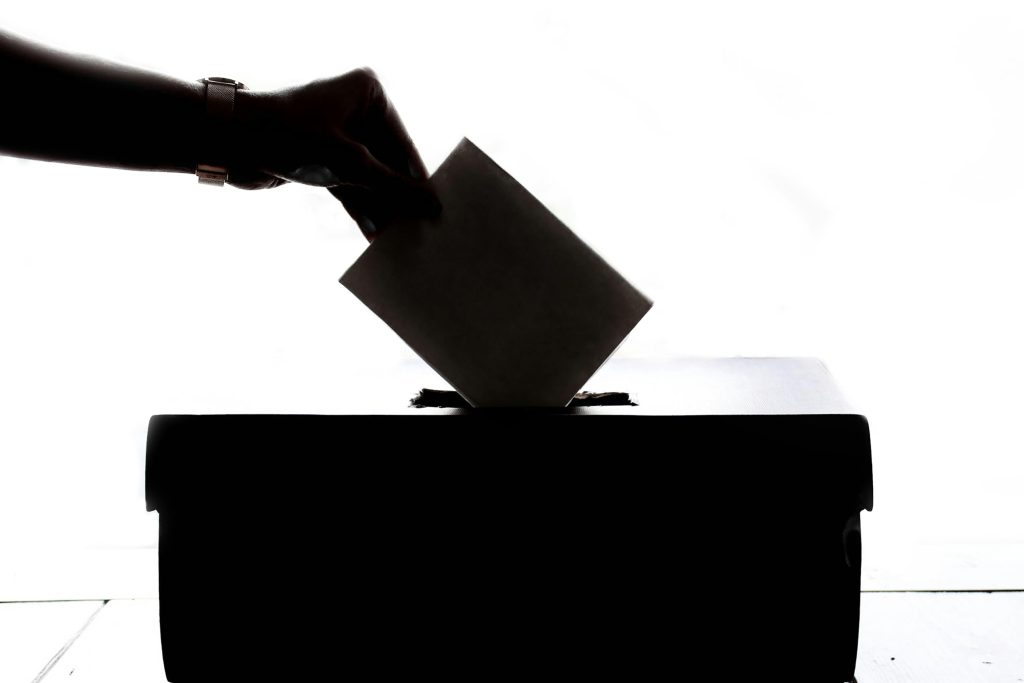Emine Ece Orkun, American Uni. LLM

“The word timshel—‘Thou mayest’— that gives a choice. It might be the most important word in the world. That says the way is open. That throws it right back on a man. For if ‘Thou mayest’—it is also true that ‘Thou mayest not.” says John Steinbeck in his book titled East of Eden.’
As Steinbeck beautifully captures the essence of free will and the power of choice, highlights that ”The concept of “timshel,” meaning “Thou mayest”, emphasizes the fundamental human ability to choose our own paths, to shape our destinies. It’s a profound recognition of the responsibility and autonomy inherent in our existence. The idea that we are not simply subject to fate or predetermined outcomes, but rather, we possess the capacity to determine our own actions and thereby influence our lives, is incredibly empowering. It acknowledges both the possibilities and the limitations of our choices, highlighting the complexity of moral agency and the perpetual struggle between good and evil within us.
In democratic societies, elections represent the ultimate expression of individual choice. Citizens have the opportunity to exercise their right to vote, determining the direction of their country’s governance. “Thou mayest” encapsulates this freedom to choose among various candidates and platforms, reflecting the essence of democratic participation. Just as in Steinbeck’s concept, with the freedom to choose comes responsibility. Voters bear the weight of making informed decisions that align with their values and beliefs. The phrase “Thou mayest” underscores the personal agency involved in the electoral process, emphasizing that individuals have the power to shape their collective destiny through their choices at the ballot box. Steinbeck’s acknowledgment of the duality of choice—”Thou mayest” and “Thou mayest not”—resonates with the consequences of electoral decisions. Each vote cast or not cast has implications for the future course of governance, policies, and societal direction. It highlights the significance of thoughtful deliberation and the awareness of the potential outcomes of one’s choices. Elections often present voters with complex choices, reflecting diverse ideologies, interests, and priorities. The phrase “Thou mayest” recognizes this complexity, acknowledging the multitude of factors that influence individual decision-making. Just as characters in Steinbeck’s novel grapple with moral dilemmas, voters may wrestle with conflicting values or concerns when selecting their preferred candidates.
In Turkish, there is a phrase “şişede durduğu gibi durmuyor” which could be translated as “It doesn’t stay as it is, just like it stays in the bottle.” It’s often used to convey the idea that things change or deteriorate over time, similar to how liquid inside a bottle doesn’t remain stagnant but may evaporate, leak, or spoil. In broader contexts, it can refer to the inevitability of change or the unpredictability of circumstances. In also certain contexts, especially colloquial or humorous ones, the phrase might be playfully applied to situations involving alcohol or intoxication, implying that the effects of drinking may lead to unpredictability or change.
The reason actually I brought up above Turkish phrase to the discussion is because, when the topic is Türkiye in politics, Steinbeck’s words are “doesn’t stay as it is, just like it stays in the bottle.” Specifically Western media and academics.
As Türkiye saw the number of elections at both local and presidential levels in the last decade, most of the Western media outlets were not shy to undermine the will of Turkish people, but rather discuss whether Türkiye is a democratic country, or whether elections are fair.
Western media often simplifies the narrative around Türkiye’s democratic process, framing it as a battle between democracy and dictatorship while overlooking Türkiye’s long history of democracy spanning over 70 years and its ongoing efforts toward democratization. They tend to emphasize democracy only when it aligns with their interests, portraying Turkish elections as a struggle against authoritarianism. This one-sided approach is evident in publications like The Economist and The New York Times, which focus on Erdogan’s ties with other countries, specifically Russia. Also while talking about values like democracy and human rights Western media did not highlight enough Erdogan’s effort to find a humanitarian solution to the Russia -Ukraine war by having several meetings and actively working to ensure everyone’s safety and goodwill with both presidents. The comments about Türkiye’s democracy and President Erdogan were like French magazines like Le Point and L’Express also contributed to this biased narrative by labeling Erdogan as another Putin and warning of Türkiye becoming an empire based on the election outcome, neglecting the democratic nature of elections and spreading fear and pessimism. These media outlets often prioritize sensationalism over balanced reporting, crafting dystopian narratives instead of providing nuanced perspectives.
The Western media’s portrayal of Turkish elections has been riddled with errors, characterized by a simplistic approach, lazy journalism, and a lack of understanding of the country’s political landscape. The narrative driven by preconceived notions and expectations proved to be flawed as the second round approached, and the shallow analysis conducted before the first round failed to grasp the complexities of Turkish society.
As highlighted in a Foreign Policy article reflecting on self-criticism, the past two weeks have seen a decline in the credibility of manipulative polls and a growing sense of disillusionment.
The prevalent trend of misinterpretation in Western media can also be attributed to a significant oversight regarding the foundational elements that shape Turkish political culture. This oversimplified approach, which primarily focuses on economic factors, fails to recognize the paramount importance of the national defense industry, national security, and counterterrorism within the Turkish context.
Nevertheless, nationalist values have always exerted considerable influence in Turkish political culture and should never be disregarded as secondary factors. Upholding national security and steadfastly combating terrorism have consistently remained crucial. Relying solely on economic variables for analysis has led to flawed interpretations, as evidenced in Western media coverage.
We have to note that, According to The Supreme Election Council; the participation rate in Türkiye for the presidential election in 2023 is 88.92%. This number is very high compared to the election participation rates in many European countries.
According to the Anadolu Agency, in terms of election participation rates, Austria is 75.69 percent, France is 73.59, and Spain is 71.76. In Switzerland, participation in the elections held in 2019 remained at 45.12 percent. Free and fair elections are one of the hallmarks of contemporary democracies. Voters coming to the polls is one of the moments when they confirm the legitimacy of the political system. The fact that the election participation rate in Turkey is so high is proof that people’s trust in democracy is still increasing and that they are seeking solutions to their problems through democracy. At the same time, we observe that in countries where there is no confidence in elections, participation rates drop dramatically, as the people become hopeless and believe that they cannot make a change. Even though there are some opposed ideas about the high electoral participation rates, for Türkiye, people are going out to the polls to make a difference and show their point of view to the next and past politics. The impressive 88.92% participation rate in Türkiye’s 2023 presidential election reflects not only trust in the democratic process but also a commitment to civic duty. This contrasts starkly with lower participation rates in some European countries, suggesting a strong belief in democracy among Turkish citizens.
Another point I would like to draw is; while Türkiye’s democracy has always been discussed by Western media, giving women’s right to vote, be elected and allowing them to participate in democratic life took place in some leading democratic countries later than Türkiye. In Türkiye, women’s right to vote and be elected was accepted in 1934. In some exemplary democratic countries, such as France, women were granted the right to vote and be elected in 1944, in Switzerland, 1971, Portugal 1976, and Italy 1946. In fact, it should not be ignored that Türkiye, whose democracy is constantly discussed, has played a pioneering role in ensuring women’s right to vote and has more deep-rooted history.
Moreover, some of the issues that the Western media blames Türkiye for election security and some worries about the will of the people reflected in the ballot box. In 2019 local elections were cancelled due to the assignment of non-public servant individuals to the ballot box committee, which was perceived as a threat to electoral integrity. As a reaction to cancellation, voters only rushed the ballot box to increase the gap. The Turkish people are not inclined to tolerate the disregard of their political will and choices. Even in instances where they perceive injustice, they have consistently supported alternative options to prevent it. This steadfast commitment serves as a tangible indication of their dedication to democratic rights. A notable example of this occurred during the repeat of the Istanbul mayoral elections in 2019. Initially, the election was annulled due to the assignment of non-public servant individuals to the ballot box committee, which was perceived as a threat to electoral integrity.
This interference was viewed by the Turkish voters against their will and the electoral process itself. Interestingly, in the initial election, the opposition candidate won by a margin of 13 thousand votes, whereas in the repeat election, this margin surged to 806 thousand. Such a drastic shift underscores the Turkish people’s response to any perceived unfairness or infringement upon their electoral rights. It is unrealistic to expect them to passively accept the notion that all elections were conducted under unfair and illegitimate circumstances, especially considering their strong reaction to the repeat of the Istanbul mayoral election.
This debate, while disregarding the will of the Turkish people, it also reminds me of the famous words of one of America’s legendary leader, Abraham Lincoln, “Elections belong to the people. It’s their decision. If they decide to turn their back on the fire and burn their behinds, then they will just have to sit on their blisters.”

